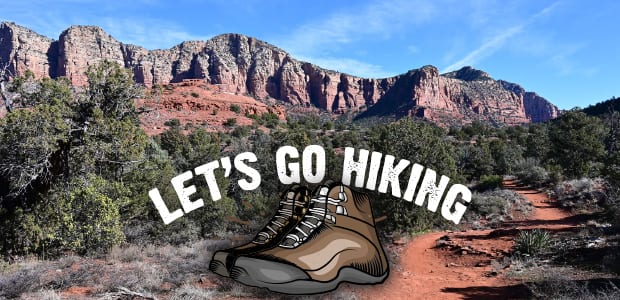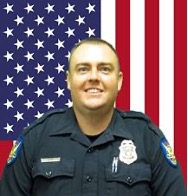By Kathy Crawford
Communications Committee
Desert Ridge Community Association
Our Black Mountain Precinct is made up of fine men and women who are not only dedicated to patrol our neighborhoods and commercial area, investigate criminal matters, surveillance/enforcement of various areas of criminal activity but also assist with community groups and concerns and assist with public safety education and training. In concert with the above, they have begun a citizens’ group called Operation Hope which is attended by folks from your board as well as other communities in the Black Mountain Precinct. This group is concerned with the drug activities in our neighborhoods and schools which is leading toward crimes that are directly sourced to the “need” to purchased more drugs. We first reported on this group in our Spring edition. This is your update.
Lt. Brian DeBenedetto and Sgt. James Rothschild are leading the group and Commander Joseph Klima welcomed everyone to the meeting. The guest speaker was Stephanie Siete who works with Community Bridges, Inc. which runs a drug and alcohol detox program called Next Step. It is a 6 week education and diversion program for youth and families. It is currently offered to families referred by Tempe Union High School District (and funded by them). It is a school-based alternative to suspension for students who have been temporaily suspended from school for involvement with alcohol or other drugs. It is designed to proactively intervene with problematic issues teens may face with early onset of substance abuse. The overarching goal of the program is to deter experimenters from becoming regular users which, then, leads to criminal activity. Community Bridges is able to offer this program to other schools or groups as well as to individuals. In addition, Stephanie offered a referral list of resourses (see next page) of other resources available.
There was lively discussion regarding the current craze among youth of “Spice” and “Bath Salts”. Spice is a synthetic blend of chemically treated leaves that can be smoked. With the addition of chemicals similar to delta-9-tetrahydrocannabinol, or THC, the main psychoactive ingredient in cannabis – the herbs can provide a legal high. Spice is marketed under numerous brand names, including “Spice Silver,” “Spice Gold,” “Spice Diamond,” “Spice Tropical Synergy,” “Spice Arctic Synergy,” “Spice Gold Spirit,” “PEP Spice,” “PEPpourri,” “K2,” “Black Mamba,” “Happy Shaman Herbs,” “Genie,” “Yucatan Fire,” “Dream,” “Ex-ses,” “Blaze,” “Spike 99,” “Spark,” “Fusion,” “Magma,” “Hard Core” and “Deliverance,” as well as other names. Spice is generally packaged in two-inch by three-inch metallic packets containing approximately three grams of the substance. Three grams is enough to make five or six “joints. On the heels of one designer drug comes another that experts are calling more dangerous, with side effects that can take days to wear off. Synthetic cocaine, being marketed and sold legally and locally as bath salts under such names as “Ivory Wave” or “Vanilla Sky,” is stealing the headlines from synthetic marijuana for its toxic properties and cocaine-like high. This synthetic stimulant contains a chemical called mephedrone, made from a chemical which is based on compounds found in “khat,” an East African plant that contains a natural stimulant. Mephedrone is unscheduled in the U.S. and chemically similar to an amphetamine.
Sold as a legal alternative to illicit street drugs, synthetics are purchased at smoke shops, neighborhood stores and even gas stations. Although many designer drugs are not illegal under federal drug laws, they can still be looked upon by law enforcement in the same fashion as a controlled substance if they are proven to have the same chemical or pharmacological makeup, according to the DEA. In addition, President Obama recently signed a bill banning two dozen of the compounds used to make the drugs.
Heroin (which needs no explanation) has made it’s way into the schools as well because the price is cheaper even than cocaine but even more addictive (if that’s possible). It is sold in “balloons” or little packets.
Sgt. Jaimie Rothschild made a presentation to the Paradise Valley Unified School District that was very well received. This presentation is available to any groups and Church organizations that request it.
Our thanks to these fine officers who serve our community in every way and who have stepped up to serve for the greater good. Updates will continue in subsequent issues of Desert Ridge Lifestyles.
Referral List
Community Bridges, Inc., 24/7 Access to Care Line – 877-931-9142
Community Information & Referral, Dial 2-1-1 – www.cir.org/help
Magellan Health Services of AZ, Crisis Line – 800-631-1314
Cenpatico Behavioral Health – 866-495-6735
NARBHA – Northern AZ Regional Behavioral Health Authority – 877-756-4090
UPC/Connections AZ, Inc. – 602-416-7600
PRC-West/RIAZ – 602-650-1212
Homeless/Domestic Violence – 800-799-7739 or 602-263-8900
Child Abuse Hotline – 888-767-2445
Community Information & Referral – 602-263-8856 or 800-352-3792
Alcoholics Anonymous (AA) – 602-264-1341
Narcotics Anonymous (NA) – 480-897-4636
Adolescent Resources
CBI Next Step Program – 480-768-6035, www.communitybridgesaz.org
Al-Anon – 480-969-6144, www.al-anoneastvalley.org
Banner Behavioral Health – 602-254-4357, www.bannerhealth.com
A New Leaf Mayfield Alternative Youth Center – 480-464-7468, www.turnanewleaf.org
Adolescent Substance Abuse Program (ASAP) – 602-434-0249, www.asapaz.com
Treatment Assessment Screening Center (TASC) – 602-254-7328, www.tascaz.org
Teen Addiction Anonymous – www.teenaddictionanonymous.com
Teen Lifeline, Inc. – 602-248-8336, www.teenlifeline.org
St. Lukes Behavioral Health Center – 602-251-8535, www.stlukesbehavioralhealth.com
Parc Place – 800-844-6435, www.parc-place.com
Suicide Prevention Lifeline – 1-800-273-TALK (8255)
Valle del Sol – 602-523-9312, www.valledelsol.com







